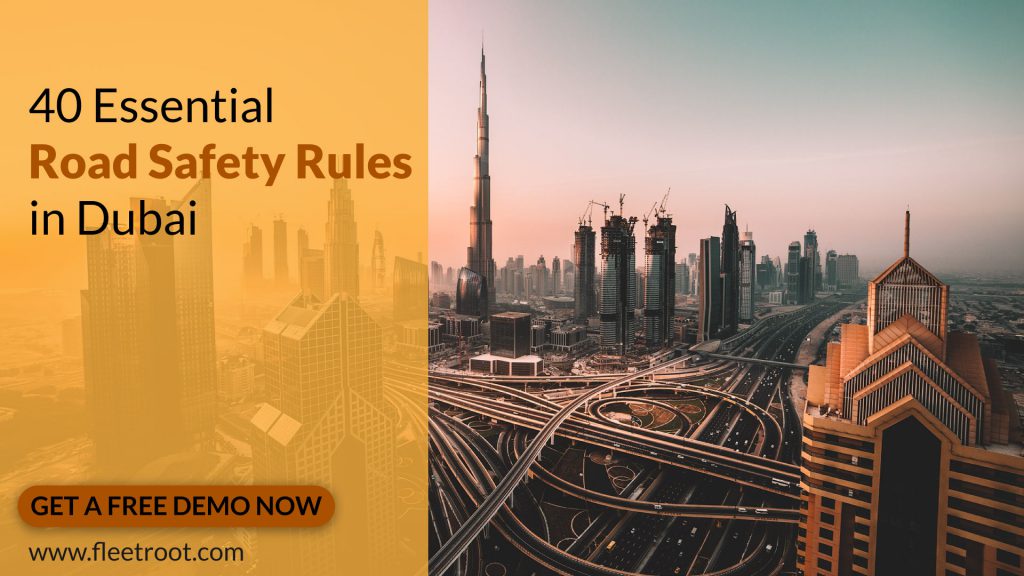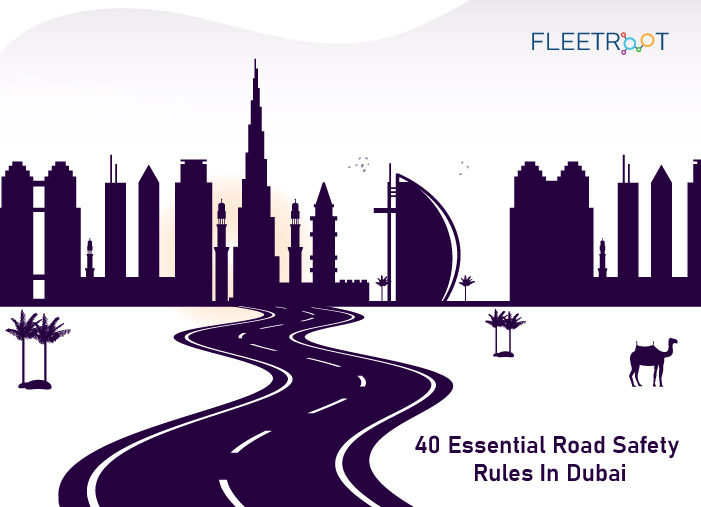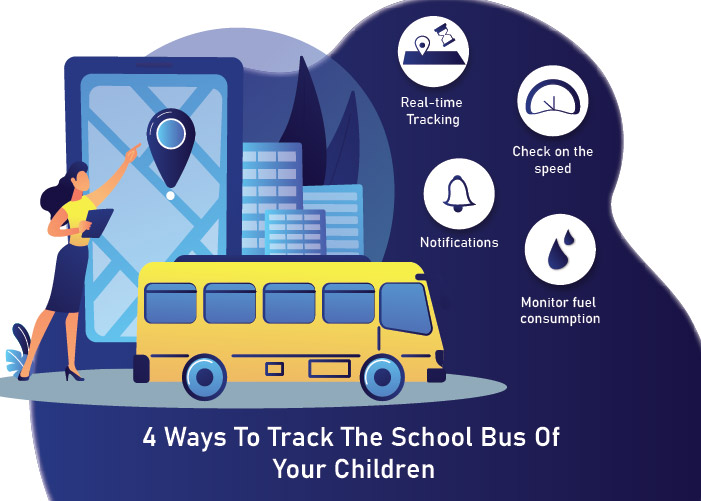Dubai is a melting point of various nationalities and cultures – hence in spite of a sound road infrastructure, driving styles and traffic conditions can be rather unpredictable.
That said, the UAE road traffic authorities have laid out strict traffic rules and regulations, along with hi-tech detection systems and hefty fines to enforce the regulations.
When in Dubai, here are some of the essential road safety rules that you absolutely must know:

Basic norms
1.The minimum age for legal driving in Dubai is 18 years. Before turning 21, drivers must renew their licenses every year, and thereafter every 10 years.
2.It is vital to ensure that drivers carry a valid UAE license, along with the relevant insurance and registration papers with them at all times. For commercial vehicles, the driver must additionally have the relevant permits and clearances.
3.UAE follows the right-hand drive system, with steering wheel on the left and driving on the right side of the road. Accordingly, overtaking is allowed from the left.
Critical Road Safety Rules
4.Speed limits are clearly specified and very seriously enforced in Dubai.
Generally, the speed limit ranges between 60kmph-80kmph for urban areas, 100kmph-120kmph for highways and 40kmph for residential areas.
The defaulters have to pay fines depending on the severity of the violation.
E.g., if drivers are found exceeding speed limits by more than 60 kmph, a fine of AED 2000 and vehicle confiscation for 30 days is enforced. A similar fine would apply for deliberately racing or reckless driving.
5.It is important to note that the minimum speed limits are as important and as strictly enforced as the maximum speed limits. Dubai roads are large and have a wide variety of vehicles – including giant 4×4’s and sports cars. Driving too slowly could obstruct regular traffic and may even cause an accident.
6.Drunk driving is considered a serious criminal offense, and those found guilty may have to face cancellation of their driver’s license and insurance, along with a hefty fine decided by court.
7.Seat belts are mandatory for everyone in the car, including children. A child below 4 must have a child safety belt.
8.For safety purposes, it is important that the passenger on the front seat is at least 10 years old and at least 145 cm tall.
9.Overtaking is very common in Dubai, and from both sides of the road. One must make sure that rear and side view mirrors are functioning and keep a watch out for fast vehicles. Nevertheless, the rules are very strict – Overtaking on the hard shoulder can attract a hefty fine.
10.Drivers must keep a safe following distance and apply the 3 second rule: their vehicle must be 3 seconds away from the one in front. Tailgating is considered an offense and can attract a fine.
11.Use of mobile phones and other such devices is a traffic hazard and therefore strictly banned in Dubai.
12.Drivers must follow all the traffic light signals: A Green light means go, a flashing green means you should slowdown, amber means you need to stop passing through the lights and red means stop.
If found jumping a red light, the consequences would be serious: a fine of up to AED 1000, and confiscation of vehicle for 2 months.
13.Never drive a vehicle without a proper number plate that confirms to UAE laws. Failing to do that is a grave offense in Dubai, which could lead to a hefty fine along with confiscation of your vehicle for up to 3 months.
14. Driving behavior that endangers lives of others is dealt with very strictly. Similarly, not stopping after causing an accident that led to injuries, or causing a loss of life is considered a very grave criminal offense, and dealt with accordingly.
15.Dubai being an important global hub for transportation and cargo, heavy vehicle drivers have a special responsibility to drive responsibly, and have to face strict enforcement’s if they default:
Going past a red-light, causing harm to public or private property, or causing an accident / overturning of any vehicle could result in a fine of AED 3000 + license suspension for a year.
In addition, heavy vehicle drivers must follow lane discipline, comply with all safety and security norms, refrain from dangerous overtaking, and ensure that their loads are not protruding or endangering other vehicles.
16.Never stop in the middle of the road without a justified reason. You could seriously endanger your life and that of others around you.
17.Always maintain your vehicle and conduct pre-drive checks.
A breakdown on a busy road could be extremely dangerous.
In case a breakdown does occur, gradually decelerate and pull over across the right hard shoulder of the road, put on the hazard lights, use the hand brake, and try to put a reflective triangle on the side of the road at least 100 meters before your vehicle. Then call the local emergency service.
18.If you intend to take a U turn, first make sure, your road is not having a single line or a continuous double line, or a no-U-Turn sign. Indicate your intention with the help of the indicator, and make sure you have a clear view of traffic in both the directions.
Then make sure to first give way to other vehicles or pedestrians, before completing the U turn.
19.While in Dubai, it is your duty to give way to ambulances, police and official vehicles. Failure to do so attracts heavy penalty.
20.In case of an accident, never crowd around the accident site. It could create a traffic deadlock and may result in heavy fines for all concerned.
21.It is forbidden to park your vehicle near a fire hydrant, or in spaces designated for ambulances or people with special needs.
Other Important Road Safety Rules
22.Cars with tinted windows are unavoidable, given the weather conditions, but they cause poor peripheral vision for the driver after dark. Currently, the maximum permissible tinting of car windows is 50%.
23.While at an intersection, never enter or stop at a yellow box junction, unless the exit is clear.
24.On a public road, never park in prohibited areas on the left road shoulder.
25.It is your responsibility to ensure that your vehicle is roadworthy at all the times. Never modify your vehicle’s engine or chassis or change the color of your vehicle without permission.
Always check for working front, back and side lights. Make sure your tires are not expired / worn out.
26.Never throw out leftovers from your car. Either dispose them off later or drive to the nearest garbage can.
27.Always use headlights at night, and especially in foggy climate.
28.While at an intersection, always look out for pedestrian crossings and wait for pedestrians to cross first.
29.If a school bus in front of you gives a stop sign, make sure you stop at a distance of at least 5 meters behind it.
30.Be extra cautious while reversing your car. Make sure to use your back-perspective mirrors and back sensors.
31.Never deliberately block traffic behind you. If you stop a vehicle from passing you on the left, you could be fined.
32.Always use indicators if you want to turn your vehicle or alter your lane.
Use of hand signals is not encouraged in Dubai.
33.Always refrain from honking in residential areas and silent zones near hospitals or schools.
34.In Dubai, you cannot write or place stickers of any kind on your car.
35.Always make sure your vehicle confirms to emission norms. Failure to do so could set you back by a hefty amount.
36.While at an intersection or otherwise entering a road, always carefully check for approaching vehicles before proceeding.
37.Make sure to follow instructions of the traffic policeman. Failure to do so will attract a penalty.
38.Never block the movement of other vehicles by parking directly behind them.
39.For drivers of transport buses or school buses, it is very important that they drive in the designated lanes only.
40.Drivers of school buses need to ensure that they indicate the Stop sign to other vehicles well in time, so that school children can safely alight or board the vehicle. Failure to do this will result in a penalty.
In conclusion, while the traffic authorities are leaving no stone unturned, it is ultimately up to the drivers to commit to responsible driving.
When it comes to commercial vehicles, passenger and school transportation buses, the stakes are considerably higher:
A lot of fleet operators now employ GPS vehicle tracking system to ensure that their vehicles and drivers are monitored in real time.
Similarly, many schools have adopted School Bus GPS Tracking System to ensure that school children as well as bus trips are monitored in real time, and any vehicle issues or irresponsible driver behavior is identified and promptly corrected.



